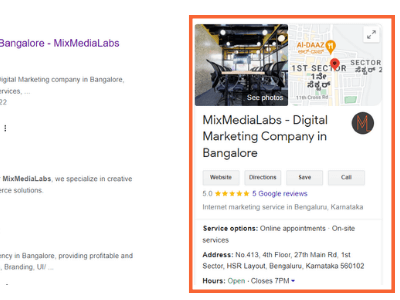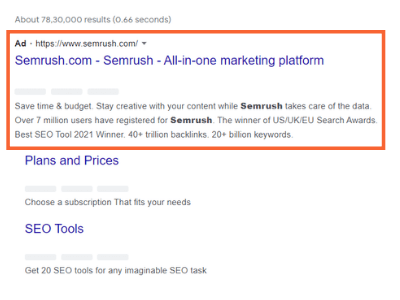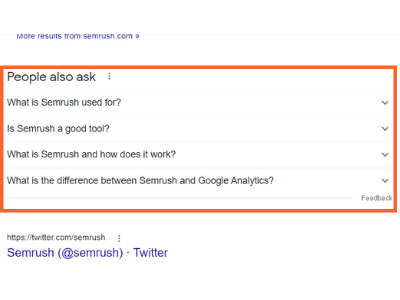
- Posted on
- admin
What Is SERP? Why Do SERPs Matter For SEO?
When users visit a search engine for some research, they are not interested in scrolling down several SERPs. They want the search engine algorithm to be smart enough to provide relevant sites to answer their query. The algorithm and search engines have become considerably sufficient to perform the task, resulting in better organic search results.
Internet marketing, in newer times, tosses various acronyms frequently. SERP is significant among those. But, you must question, “What is SERP?” You must be excited to know the importance of SERP as well. We will surely go through all of your queries in this blog, fulfilling your thoughts. But, first and foremost, let’s go through a quick view about SERP:
WHAT IS SERP?
It won’t be wrong to say that SERP is an abbreviation we regularly go through in this digital realm. Well, SERP is nothing new. SERP stands for Search Engine Results Pages. To clarify, it refers to the results that the search engine presents when you type a query in its search box.
With these viewpoints, it is evident that the SERPs are directly related to your website ranking. In other words, if the content of your web pages is worth the search engine’s algorithm, it places your site among the first few. As a result, web traffic bounces on your site. According to research, approximately 75% of clicks are for the first page of Google results. Moreover, the first five organic search results receive 52% of clicks. Thus, if your site appears on page 1, you get clicks beyond your imagination.
Significant elements of a typical SERP
Now, when we have a clear introduction of a search engine results page or SERP, we may proceed further to dive deep to understand the importance of SERP. SERP is pretty essential for the SEO of our website, and thus a detailed knowledge will help us a lot with the same.
To understand SERP better or stay benefitted from its various aspects, we must be aware of the multiple elements of the search engine results page. That is to say, if we get how features of SERP are helpful for our website, we can easily track or sort out the problems or issues related to the SEO part of our website. With that, here are the elements of a typical Google SERP:
Organic Search Results
Google’s Complex Algorithm usually determines the organic search results. According to the Algorithm, some critical factors responsible for website ranking may include Off-page and On-page SEO signals, site loading speed, and Brand presence and trust signals.
Standard organic search results snippet includes:
- Page title or Title tag
- Page URL
- Meta description
It seems important to note that Google sometimes adds features to specific organic snippets, such as the publishing date of a webpage or site links. Further, when a page uses schema, Google adds review stars and images that turn a regular snippet into a Rich Snippet.

Knowledge Panel Result
Whenever you click on some sites, we observe some information displayed on the right side of the organic search results. These resemble Knowledge Graphs and panels. That is to say, these are a kind of “baseball card” stats for a company. It is important to note that such data are from hand-picked sources like Wikipedia and Crunchbase.

Paid Search Results
While scrolling, you must have noticed a small “Ad” icon in the top left corner of the snippet of a site. It is a marked Paid Search result by Google. Notably, there’s an average of 3.10 ads per page. The excellent competition requires ads at the bottom of the SERPs as well. And ads appearing at the bottom will efficiently collate the crowd, resulting in better organic results.

Video Results
People often find videos results more beneficial as it engages their brain efficiently. Meanwhile, Google also shows video results answering a query on the search engine. Notably, these queries offer a pack of 3 videos and a carousel to see more for further help. Now, 80% of these videos are from YouTube. Most likely, the keyword used seems pretty crucial for this selection. Ultimately, this should be considered responsible enough for website ranking.

People also ask
When you are on a search engine with a query, you have noticed a new feature in Google, i.e., People Also Ask. It is usually in the middle of the SERP or search engine results page. Clicking on any one of these provides an answer to it. The questions asked are beneficial for blog posts, videos, podcasts, etc.

Why do SERPs matter for SEO?
We have gone through SERP and its essential features. Now, it’s pretty logical to know the importance of SERP and how it helps in website ranking. The algorithm of search engines decides the pinpoints of SERPs, i.e., the guidelines as to how the content appears on the webpage.
SERPs are essential for the SEO of your page because website ranking directly links to organic search results. These ranking signals determine the position of a website. Ranking poorly on SERPs may lead to less exposure and fewer clicks leading to less organic traffic and less revenue. Thus, websites must intentionally put much effort into SEO.
The SERP is your SEO opportunity to provide the user with the valued content, including an engaging title and inviting page description. Now, a complex algorithm, guarded by Google, determines the order of the web pages in the SERPs.
